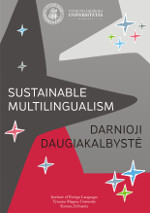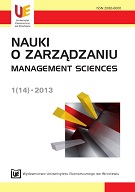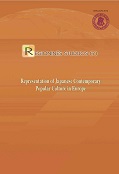Discussing Soft Power Theory After Nye: The Case Of Geun Lee‘S Theoretical Approach
Author(s): Simona Vasilevskytė / Language(s): English
/ Issue: 7/2013
Keywords: Soft power theory; soft power synergy; soft power dilemma; categories of soft power; Geun Lee; Joseph Nye; Švelniosios galios teorija; švelniosios galios sinergija; švelniosios galios dilema; švelniosios galios kategorijos; Geun Lee; Joseph Nye
Soft power theory was first introduced by Joseph Nye in 1990, and till this day is attracting the attention of many other political scientists, who are trying to build the best theoretical approach to it. One of such political scientists, developing his theoretical framework of soft power, Geun Lee, has proposed his way of differentiating soft and hard powers. According to Lee himself, his conceptual framework is a kind of extension of Nye’s soft power theory in terms of definition and categorization, but, differently from Nye, Lee attached the nature of power to its sources thus solving the problem of distinguishing hard and soft powers. The aim of this article is to analyze the theoretical approach of soft power theory proposed by Geun Lee. The objectives are to examine the key aspects of Lee’s approach to soft power definition, categorization, and the concepts of soft power dilemma and soft power synergy that make his approach different from others. It is pointed out that while Nye presents a more the U.S. centered, or the leading state, perspective of the use of soft power, Lee looks at it from the perspective of non-leading states, emphasizing the reasons for them to use the soft power. Thus Lee divides soft power into five different categories according to their goals and defines it according to the resources used. Moreover, by employing Putman’s two-level games theory, he discusses the use of soft power on international and domestic levels with the help of the concepts of soft power synergy and soft power dilemma.
Švelniosios galios teorija pirmą kartą buvo pristatyta J. Nye dar 1990 m., tačiau iki šiol traukia daugelio politologų, bandančių jai sukurti kuo geresnį teorinį modelį, dėmesį. Vienas iš tokių mokslininkų – Geun Lee – pasiūlė savąją šios teorijos versiją, padėjusią atskirti kietąją ir švelniąją galias. Kaip teigia pats autorius, jis tiesiog išplėtė dar J. Nye sukurtą teoriją ir papildė ją švelniosios galios apibrėžimu, pasiūlydamas savo klasifikaciją. Tačiau G. Lee, skirtingai nei J. Nye, susiejo švelniąją galią tiesiogiai su jos šaltiniais ir taip tarsi išsprendė švelniosios ir kietosios galių atskyrimo problemą. Šio straipsnio tikslas – aprašyti G. Lee pasiūlytą švelniosios galios teorijos modelį. Straipsnyje siekiama išanalizuoti pagrindinius šios teorijos aspektus: švelniosios galios apibrėžimą, kategorijos bei švelniosios galios sinergijos ir švelniosios galios dilemos sąvokas. Išanalizavus G. Lee teorijos modelį, paaiškėjo, kad, skirtingai nei J. Nye, kuris savo teoriją dėsto iš Jungtinių Amerikos Valstijų, šalies lyderės, perspektyvos, G. Lee modelis parodo, kokiems tikslams nelyderiaujančios šalys naudoja savo švelniąją galią. Tam G. Lee švelniąją galią suskirsto į penkias kategorijas pagal jos panaudojimo tikslą bei tiesiogiai susieja su jos šaltiniais.
More...




